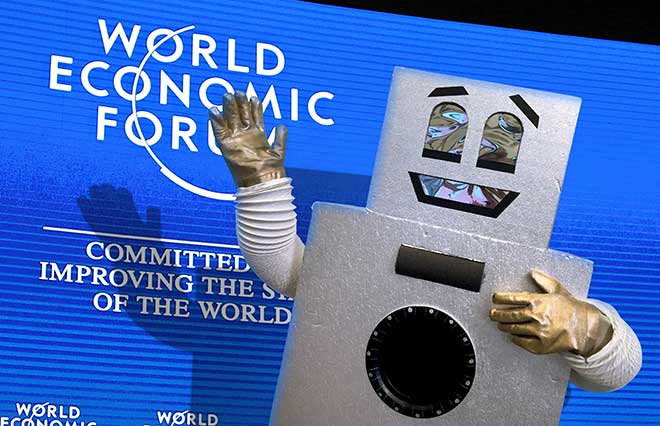Basic Income Earth Network - Switzerland
Davos: will robots replace the human workforce?
The 46th edition of the World Economic Forum ended on January 23rd. The danger that represents the 4th industrial revolution for employment was at the heart of the debates. MIT economist Erik Brynjolfsson underlined that "we're heading towards a future with incredible amounts of wealth and little work" . His university just published a report stating that 47% of all jobs in the US could be automated within 20 years. Another study by the WEF shows that artificial intelligence will destroy 7.1 million jobs in the next five years in the 15 main world economies and will only create 2 million new jobs.
In this context, unconditional basic income (UBI) is gaining more and more popularity in the world. Y-Incubator, an influential incubator for american start-ups is starting a research programme on basic income: "the fear of not having enough to eat to motivate people will be a ridiculous concept in 50 years", said it's founder. Finland and Québec will introduce it and cities in the Netherlands will start local experiments. In France, a report from the National Digital Council (CNNum) submitted to the government, states that an UBI could play a vital role in facing the automation of labour and suggests the making of a feasibility study.
In order to emphasize the tight correlation between the spectacular progress of the modes of production and the necessity for a basic income, Generation-Grundeinkommen activists held a media action in front of the WEF in Davos. They danced with friendly-looking robot - a costume which the activists have built themselves. They showed that with an UBI, we should rejoice about the development of robotics that would allow human beings to dedicate themselves to more noble tasks
- Print node
 Email this !page
Email this !page- Login to post comments
- 12573 reads





Comments